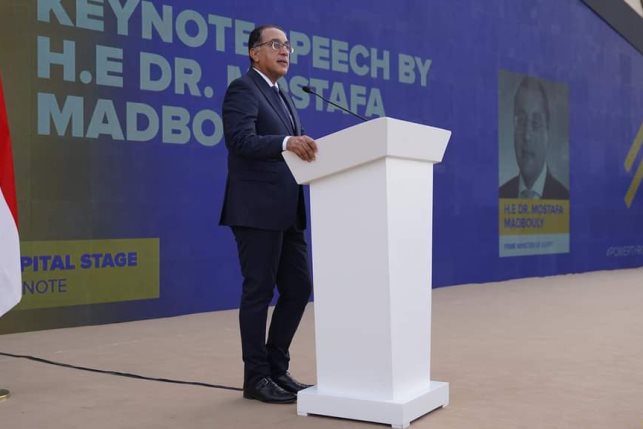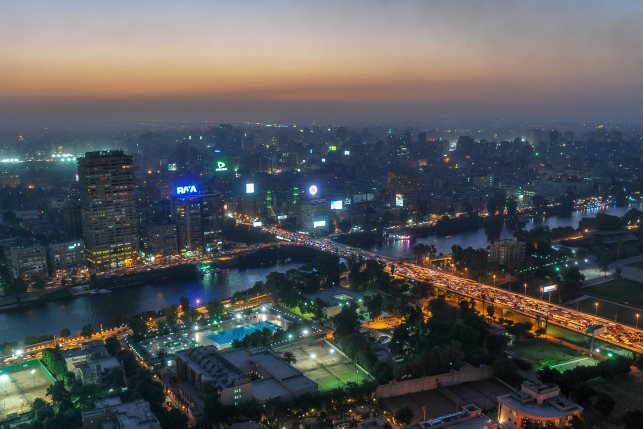Egypt's Industrial Renaissance: A decade of outstanding achievements
Egypt's industrial sector has soared over the past decade, with robust growth, streamlined processes, and strategic investments.
 Egypt's industrial sector has soared over the past decade, with robust growth, streamlined processes, and strategic investments - File Photo
Egypt's industrial sector has soared over the past decade, with robust growth, streamlined processes, and strategic investments - File Photo
Egypt's industrial sector has displayed remarkable positive indicators over the past nine years, with the total industrial output reaching 1.252 trillion Egyptian pounds in the last year alone, compared to approximately 357 billion pounds in 2014.
The real growth rate of the manufacturing sector surged from 4.77% in 2014 to 9.57% in 2022. Furthermore, Egypt's total exports during the previous year amounted to 35.8 billion dollars, compared to 21.95 billion dollars in 2014, with industrial exports reaching 22.2 billion dollars in 2022, reflecting an impressive 83.5% increase.
In terms of industrial land allocation and administration, one of the pivotal demands from investors and industrialists in 2014 was the consolidation of authorities responsible for industrial land allocation and licensing.

Minister of Trade and Industry Ahmed Samir giving a speech at the Hekayet Watan 2023 conference
Consequently, in 2016, administrative bodies were unified, with the establishment of a joint committee streamlining the allocation of industrial land and the issuance of operating licenses within a shorter timeframe of up to 20 days, reduced from 30 days. Industrial zones also saw growth, increasing from approximately 121 in 2014 to 147 by 2022, along with a rise in developer industrial zones from 12 in 2014 to 17, covering a total area of 22.9 million square meters.
In line with President Abdel Fattah El-Sisi's directives to support small-scale investors, 17 industrial complexes were established in 15 governorates at a cost of 10 billion Egyptian pounds, providing a total of 5046 industrial units and creating approximately 48,000 direct job opportunities.
Specialized industrial cities such as the Leather City in Robiki, Furniture City in New Damietta, Marble City in Galala, and the Pharmaceutical City in Khanka have been established, along with the inauguration of the first phase of the Textile and Garment Industries Complex in Robiki.
The government's efforts to bolster the national industry over the past nine years have included the formulation of a list of 100 incentive measures to boost Egyptian industry and attract investors.
Additionally, 95,000 qualified workers have been trained to meet the needs of the industrial sector. The national program for local manufacturing was launched, and export support was provided in coordination with the Ministry of Finance, amounting to a total of 56.7 billion Egyptian pounds for 2700 companies.
Egypt proudly introduced the "Made in Egypt" label and qualified 300 companies to obtain it.
The nation has also participated in 337 international exhibitions to promote its industries and has established economic partnerships with the UAE, Jordan, and Bahrain in the industrial sector.
Furthermore, 122 facilities within various ports have been modernized, seven international trade agreements have been signed, and the Local Product Preference Law has been enacted. Egypt has also launched a strategy for automotive industry development.
To stimulate industrial investment, the government passed Law No. 153 of 2022, offering a waiver of 65% of fines, late payment interest, and additional taxes on tax and customs arrears. Additionally, 19 industrial sectors have been exempted from property taxes for three years.
The government has extended loans with favorable interest rates of 11%, and the Golden License initiative has been introduced, with 24 licenses issued to date, and plans for further expansion.
The Ministry's future vision for the industry involves analyzing the most influential factors affecting the industrial sector, particularly production inputs, which have been significantly impacted by inflation or supply chain disruptions.
The global industrial landscape is undergoing constant change, with shifts in industries and localization in different regions. Egypt aims to attract investments to deepen its industrial base, focusing on priority sectors where the country possesses a competitive edge regionally and globally.
The strategy aims to achieve several objectives by the fiscal year 2026/2027, including increasing the industrial sector's contribution to the GDP to 20% and achieving an annual export growth rate of 18-25%.
A comprehensive analysis of Egyptian imports over four consecutive years has been conducted to identify priority industries that serve as input suppliers for other industries.
A total of 152 investment opportunities have been identified, with 92 opportunities focusing on producing inputs for the Egyptian industry to ensure supply chain sustainability.
The project has already commenced, with 160 plots of land allocated, covering approximately 1.252 million square meters and requiring an investment of around 17 billion Egyptian pounds, providing an expected workforce of 26,000 employees.
Strategic industries, targeted for substantial incentives to attract global industrial entities, have been identified, and value chain analyses have been conducted to determine the availability of raw materials in Egypt.
The Ministry has also defined new investment incentives, including tax exemptions and a percentage refund of facility costs upon project completion within half the stipulated timeframe.





